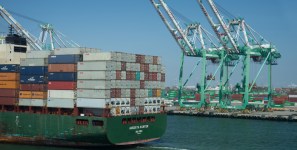A Prolonged Port Strike Narrowly Averted, for now
The nation avoided an economically crippling fallout after an agreement last Friday, October 4th, between the International Longshoremen’s Association (ILA) and the United States Maritime Alliance (USMX). The strike lasted a tense 72 hours, but the damage was contained as most shippers had already made contingency plans well in advance.
Read also: U.S. East Coast Dockworkers’ Strike – Key Insights for Container Traders and Leasing Companies
USMX settled with agreed wage increases of $4 per hour for all union members, and an additional $4 per hour raise for every year after that. The contract is set for six years, so each member can expect to receive a total of $24 per hour over the contract’s life.
ILA represented roughly 50,000 members in this widely publicized dispute, with a colorful figure at the forefront. Union boss, Harold Daggett was outspoken from the beginning, and the first strike since 1977 commenced after USMX countered ILA’s $4 proposal with a $3 per hour raise.
Meanwhile, anchored ships were visible from Maine to Texas, waiting on what all were relieved was an expeditious conclusion. ILA members were not compensated while on strike, so income losses worsened by the day. While workers resumed their posts on Friday, experts had long suggested that for every one day a port was closed, it would take nearly three to five days to recover from the resulting bottlenecks.
Three-day shutdowns are not uncommon for ports. Weather delays are frequent worldwide, and Hurricane Helene had already closed several Southeast ports before the strike. The estimated bill from the Port Authority of New York and New Jersey was $250-300 million dollars per day in losses. Counting Friday, which was also a lost day for many ports, the price tag ascends $1 billion in foregone economic activity for some ports.
As of Friday the 4th, there were 24 ships at anchor eagerly awaiting entry at the Port of New York and New Jersey. This amounted to approximately 35,000 import containers, and another 35,000 containers are set to arrive. On average, ports handle up to 400,000 containers monthly.
Last month, Boeing and the International Association of Machinists reached a deal that union members publicly supported. Yet, once the deal went to a vote it was unanimously rejected, and members have been on strike since September 13th. While this is unlikely in the case of the ILA/USMX agreement, the deal must now be voted on and ratified. If it is struck down, an impending strike is unfortunately plausible once again.





Leave a Reply